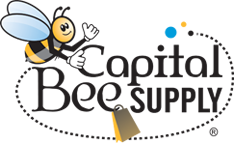Classes
Bee Classes for 2023
 If you are thinking about becoming a beekeeper, we strongly recommend you take one of the introductory courses offered in the area. While keeping bees is a fun, exciting and fulfilling experience, getting started can be overwhelming and confusing. Understanding bee biology, navigating the myriad of choices in equipment and starting to develop you own philosophy are among the outcomes of a good bee class. Click the links below to access class information.
If you are thinking about becoming a beekeeper, we strongly recommend you take one of the introductory courses offered in the area. While keeping bees is a fun, exciting and fulfilling experience, getting started can be overwhelming and confusing. Understanding bee biology, navigating the myriad of choices in equipment and starting to develop you own philosophy are among the outcomes of a good bee class. Click the links below to access class information.
4 Part Learn to Keep Bees Class
One of the problems we’ve noted with many introductory beekeeping classes is that the information for the whole year is condensed into one day, hence the reason we have decided to offer a beginning class that spans the first year. Our class is designed to give your the right information at the right time and serves to guide beginners through their first year. Click the link above to access the class details and registration form. We are now also offering this class as an online version.
Timely Topics – Continuing Education for Second Year and Beyond Beekeepers
Our Timely Topics series is directed toward individuals who have been keeping bees for at least one year. Each seminar is designed to increase the beekeeper’s depth of knowledge in a specific topic area. The timing of the topics is set to coincide with tasks the beekeeper may be performing at that particular time of the year. Sessions are now available in an online viewable format. Most of the seminars are 2 hours long and are free. Click here to get more information and to register for the seminars.
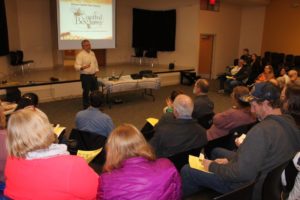
Handouts from Presentations and Classes
-
- How to Get Started with Honey Bees: Presentation Handout
- Beginning Beekeeper Equipment Guide
- How to Purchase Hive Equipment
- Honeybee Hive Equipment Explained
- What type of hive and configuration should I use?
- Understanding Honey Bee Breeds and Types
- How to Buy Bees – Packages vs. Nucs
- How to Purchase Nucs – Questions to Ask the Producer
- What should I plant for my bees? Wisconsin Plants for Bees handout
- What Should I feed My Bees? Sugar vs. Corn Syrup
- Understanding Honeybee Pests and Diseases
- Understanding Dysentery in Honeybees
- How to Cleanup Hives that had Nosema
- Understanding Honeybee Medications and Treatments
- How to Winterize Hives
- Beekeeper Calendar handout
- Hive Inspection Checklist
- How to Interpret Powdered Sugar Roll Results
- How to Sample and Test for Varroa Mites
- Why did my bees die? Winter Deadout Evaluation Guide
- How to Light a Smoker
- Tracheal Mites
- Miscellaneous Recipes and Techniques
- When can I Inspect my Hive? Temperatures Important to Bees and Beekeepers
- What are my bees foraging in? Wisconsin Bloom Calendar
- How to Install Bees in a Langstroth Hive
- How to Hive Bees in Rain and Sleet – U of Mn
Local Associations
 Interested in networking with fellow beekeepers? Not a beekeeper, but interested in bees? Check out your local beekeeping club. We have compiled a list of beekeeping clubs and associations throughout the state. Click the link below to access the list.
Interested in networking with fellow beekeepers? Not a beekeeper, but interested in bees? Check out your local beekeeping club. We have compiled a list of beekeeping clubs and associations throughout the state. Click the link below to access the list.
Complete listing of Wisconsin Beekeeping Associations and Contacts
State Associations
www.wihoney.org – Wisconsin Honey Producers Association
 The WHPA promotes the use of honey and hive products, as well as research into beekeeping problems and issues. The WHPA provides a good connection to other regional, state and national beekeeping organizations.
The WHPA promotes the use of honey and hive products, as well as research into beekeeping problems and issues. The WHPA provides a good connection to other regional, state and national beekeeping organizations.
The WHPA Spring District meetings are a way to connect with other beekeepers in one of the eight geographical regions, share information and learn new things. The meetings will be starting in early February and run through April.
National Associations
www.Honey.com – National Honey Board
The National Honey Board is a federal research and promotion board under USDA oversight that conducts research, marketing and promotion programs to help maintain and expand markets for honey and honey products.
www.abfnet.org – American Beekeeping Federation
The ABF is a national organization with about 1,000 members that continually works in the interest of all beekeepers, large or small, and those associated with the industry to ensure the future of the honey bee.
www.americanhoneyproducers.org – American Honey Producers
The American Honey Producers Association is an organization dedicated to promoting the common interest and general welfare of the American honey producer. It is the only national beekeeping organization that reserves voting rights for beekeepers.
Universities with Bee Research Facilities
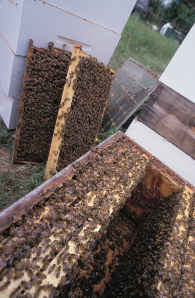
-
- Beelab – University of Minnesota Bee Lab
- Honey Bee Program – University of Georgia
- Harry J. Laidlaw Jr. Bee Research Facility – University of California
- Mid-Atlantic Apiculture Research – Penn State University
- Robinson Laboratory – University of Illinois
- Honey Bee Research and Extension – University of Florida
- Carl Hayden Bee Research Center – USDA-ARS
- NC State Queen and Disease Clinic – North Carolina State University
Bee Health – Native and Non-native pollinators
beeinformed.org – Bee Informed Partnership
The Bee Informed Partnership is an extension project that endeavors to decrease the number of honey bee colonies that die over the winter.
USDA Bee Health Extension
Cooperative Extension – lots of publications related to bee health and nutrition
www.xerces.org/pollinator-conservation/ – Xerces Society – Pollinator Conservation
The Xerces Society is a nonprofit organization that protects wildlife through the conservation of invertebrates and their habitat. Established in 1971, the Society is at the forefront of invertebrate protection worldwide, harnessing the knowledge of scientists and the enthusiasm of citizens to implement conservation programs.
www.pollinator.org – Pollinator Partnership
The Pollinator Partnership’s mission is to promote the health of pollinators, critical to food and ecosystems, through conservation, education, and research. Signature initiatives include the NAPPC (North American Pollinator Protection Campaign), National Pollinator Week, and the Ecoregional Planting Guides.
Scientific Beekeeping – Randy Oliver’s Website
Randy Oliver is a commercial beekeeper in Grass Valley California. He conducts a lot of pratical/applied research on honeybees and has authored a number of articles related to bee health and bee nutrition.
University of Wisconsin – Madison – Spring Wild Bee Guide
A very handy guide to help individuals identify the bees they see in their gardens and landscape.
Native Bee and Honeybee Mite Identification Guide
Like honeybees, native bees can also be impacted by a variety of parasitic and non-parasitic mites. This guide provides some interesting insights into the various mites of bees.
Publications and Trade Journals
www.americanbeejournal.com – American Bee Journal
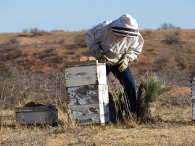 The American Bee Journal was established in 1861 by Samuel Wagner and has been published continuously since that time, except for a brief period during the Civil War. The Journal has the honor of being the oldest English language beekeeping publication in the world.
The American Bee Journal was established in 1861 by Samuel Wagner and has been published continuously since that time, except for a brief period during the Civil War. The Journal has the honor of being the oldest English language beekeeping publication in the world.
www.beeculture.com – Bee Culture
The magazine Of American beekeeping, is designed for beginning, sideline and commercial beekeepers who want the latest information.
www.bee-craft.com – Bee Craft
Bee Craft is the informed voice of British Beekeeping.
Beekeeping Forums
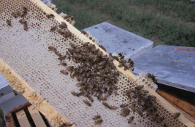
www.beesource.com – Beesource Beekeeping Forum
The Beesource Beekeeping website was started in 1997 by a hobbyist beekeeper and became an online community for beekeepers and beekeeping in 1999. It has experienced organic, word of mouth grassroots growth ever since. Today, Beesource.com has over 14,000 registered members and is the most active online beekeeping community of its kind in the world.
Ol’ Buffalo Beekeeping Page – Cedar City Utah
The Ol’ Buffalo Beekeeping Page is a virtual plethora of links to other sites related to beekeeping.
Other Sources of Great Information
Dave Cushman’s Honeybee Site
Dave Cushman was an English electrical engineer, entrepreneur and beekeeper. He collected and compiled a staggering breadth of information related to beekeeping which he made publicly available through his website. After his passing in 2011, the site has been maintained according to Dave’s wishes by one of his friends.
Phenology, Plants and Other Interesting Stuff
NASA and Honey Bees – Goddard Space Flight Center
This site is a compilation of data and research from NASA’s HoneyBeeNet program wherein honey bee foraging and hive weights are tracked in an effort to examine climate change on a national basis.
National Phenology Network
This site tracks plant and animal phenology throughout the United States
Wisconsin Pest Report – Wisconsin Department of Ag trade and Consumer Protection
Includes weekly updates on corn, soybean, fruit, forest and vegetable pests during the growing season. Also tracks the growing degree days.
